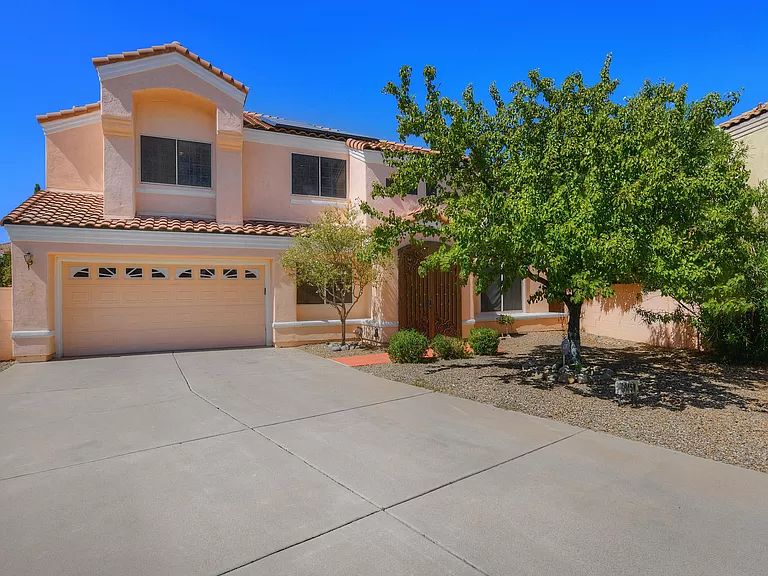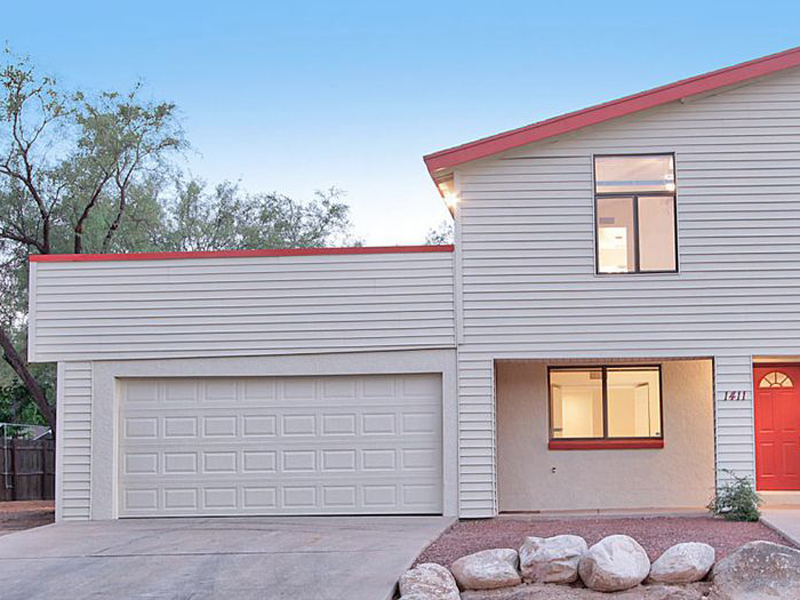Broken Garage Door Opener - Repair It Yourself Guide
Is Your Garage Door Stuck? Right here's What to Do Very first
When your garage door won't open, start with these essential security checks prior to trying any fixings. First, make sure nobody is standing near the door and that cars are free from the opening. Look for obvious indicators of damage like broken panels, bent tracks, or hanging cables. If you see a snapped springtime or severely harmed parts, stop quickly and call a specialist—-- these fixings call for specific tools and proficiency to deal with safely.

Examine These 6 Things Before Calling a Specialist
Before presuming you require expensive repair work, go through this quick diagnostic list that addresses most garage door problems:
-
Power source: Confirm the opener is connected in and the electrical outlet is functioning
-
Remote batteries: Change dead batteries in your remote
-
Hand-operated lock: Check if a person accidentally engaged the manual lock
-
Obstructions: Search for debris blocking the door's path or sensing units
-
Emergency situation launch: Make certain the red emergency situation cable hasn't been pulled
-
Circuit breaker: Validate the garage circuit hasn't tripped
These simple checks settle roughly 70% of garage door concerns without needing specialist intervention.
10 Common Reasons Your Garage Door Will Not Open
Understanding why your garage door opener isn't working assists you choose the appropriate remedy. Here are one of the most regular causes homeowners experience:
Dead remote batteries represent the easiest repair—-- when batteries die, the remote can not send out signals to the opener. Power interruptions or stumbled breakers cut electricity to the electric motor. Damaged springs avoid the door from raising effectively and call for prompt professional focus. Sensing unit misalignment reasons security systems to block door procedure. Track blockages stop rollers from moving efficiently. Electric motor overload triggers automatic shutoffs when the opener spots resistance. Limit switch issues perplex the opener concerning door placement. Cable damages disrupts the training device. Weather-related concerns influence door motion throughout severe temperature levels. Part wear from age gradually minimizes system performance.
Problem # 1: Dead Push-button Control Batteries
When your wall surface switch functions yet your remote doesn't, dead batteries are usually the offender. Many garage door remotes use either 3-volt lithium or 12-volt alkaline batteries. Eliminate the back cover of your remote and examine the battery kind. Change with fresh batteries and check the remote. If it still doesn't work, you might need to reprogram it to your opener. Consult your opener's manual for details reprogramming directions, as the procedure varies by producer.
Problem # 2: Power Supply Issues
Garage door power issues frequently originate from loosened connections or tripped circuits. Examine that the opener is firmly plugged into its electrical outlet—-- vibration can loosen up links gradually. Test the outlet with one more gadget to verify it's functioning. Analyze your home's breaker box for tripped circuits, especially if you've experienced tornados or power fluctuations. GFCI outlets may have tripped and require resetting. If the opener has power however won't respond, the concern most likely lies in other places in the system.
Issue # 3: Broken or Damaged Springs
Damaged garage door springs are amongst one of the most harmful elements to handle. If you hear a loud bang from your garage or see the door really feels extremely heavy when attempting to lift by hand, a springtime has actually likely snapped. Torsion springs run flat above the door, while expansion springtimes remain on either side. Never try spring repairs on your own—-- these elements save significant tension that can trigger severe injury or death. Specialist substitute generally sets you back $150-$300 yet ensures your safety.
Issue # 4: Blocked Security Sensing Units
Modern garage doors feature safety and security sensing units that avoid closure when items are spotted. These sensing units can quit the door from opening if they're filthy, misaligned, or blocked by debris. Clean sensor lenses with a soft towel and make sure nothing obstructs the unseen beam between them. Check that sensors are correctly lined up—-- many have sign lights that show connection status. Sensor problems frequently resolve with straightforward cleaning and change.
Problem # 5: Track Obstructions or Damage
Garage door tracks guide rollers as the door goes up and down. Dust, particles, old grease, or little objects can jam the system. Inspect tracks aesthetically and get rid of any obstructions with a brush or cloth. Search for damages, bends, or bending that can hinder smooth operation. Minor track changes are possible for useful property owners, but significant damage requires specialist repair service to prevent additional problems or security risks.
Trouble # 6: Garage Door Opener Electric Motor Issues
When the garage door motor runs yet the door doesn't move, numerous issues could be accountable. The electric motor might be overloaded and shutting down as a precaution. Equipment wear, particularly in older devices, can avoid proper operation. Chain or belt drive issues affect power transmission. If you hear unusual grinding, clicking, or humming noises, quit utilizing the opener promptly. Motor repair work often cost greater than substitute, especially for devices over one decade old.
Detailed DIY Troubleshooting Overview
Follow this systematic method to garage door troubleshooting while prioritizing security throughout the procedure:
Action 1: Examine the wall surface button first. If it works but the remote doesn't, concentrate on remote concerns. If neither works, examine power supply.
Step 2: Take a look at the manual launch cable. If it's been pulled, the opener is disengaged from the door. Push the trolley back to reconnect.
Action 3: By hand check the door by disengaging the opener and trying to lift the door by hand. It must move smoothly and stay in location when half-open.
Tip 4: Examine visible parts for damages, paying special interest to springtimes, cable televisions, and tracks.
Tip 5: Examine all safety and security attributes including sensors, limitation buttons, and auto-reverse features.
Action 6: Test different controls (remote, wall surface button, keypad) to separate the problem resource.
Constantly wear safety glasses and job gloves when performing evaluations, and never ever attempt repair services on springs or high-tension components.
When to Call an Expert vs. do it yourself Solutions

Knowing when to call a garage door professional versus trying DIY repair work secures both your safety and your wallet. Deal with these issues yourself: dead remote batteries, power supply troubles, small track cleansing, sensing unit cleansing and positioning, and standard lubrication.
Never ever try these fixings yourself: spring substitute or modification, wire repairs, major track realignment, electric wiring problems, opener electric motor substitute, or any repair service entailing high-tension components. Expert professionals have specialized tools, training, and insurance to take care of hazardous repair work safely.
Take into consideration repair service costs versus replacement prices, especially for doors over 15 years old. Modern garage doors provide much better safety features, energy performance, and reliability than older models.
Emergency Situation Garage Door Solutions
When you're stuck to a garage door that will not open up and require prompt access, adhere to these emergency procedures:
Guidebook Operation: Draw the red emergency situation release cable to disengage the opener. This allows hand-operated operation yet needs proper strategy to prevent injury. Raise the door slowly and equally, utilizing leg muscular tissues rather than your back. Most property doors evaluate 100-150 pounds, making them convenient for a lot of adults.
Temporary Solutions: If the door opens up by hand but will not stay up, prop it open with sawhorses or clamps—-- never utilize your body or automobiles as assistances. For doors that will not close entirely, make certain the opening is safeguarded if you must leave.
Emergency situation Solution: Several garage door companies offer 24/7 emergency service for scenarios including security issues, trapped cars, or full system failures. While more costly than regular solution telephone calls, emergency situation repair work offer instant remedies when required most.
Safety Warning: What NOT to Do
Garage door safety and security requires recognizing harmful repairs that should never be tried by home owners:
Never attempt to fix springs—-- they store enough power to create deadly injuries when they break or are incorrectly handled. Do not force a stuck door—-- this can harm the opener, tracks, or door panels, producing extra expensive issues. Stay clear of bypassing safety functions—-- sensing units and auto-reverse mechanisms stop major injuries and property damage.
Do not overlook unusual sounds—-- grinding, scraping, or banging audios indicate issues that get worse with time. Never make use of the door if wires are torn or damaged—-- the door might fall unexpectedly. Do not attempt electric repair services unless you're a qualified electrical contractor—-- garage door openers use both 120V home current and low-voltage control circuits.

Preventative Maintenance to Prevent Future Problems
Normal garage door upkeep protects against most typical troubles and prolongs system lifespan dramatically:
Monthly Jobs: Visual evaluation of all components, evaluating auto-reverse safety and security attributes, checking and tightening hardware, and cleansing tracks and sensors.
Quarterly Jobs: Oiling all relocating get rid of appropriate garage door lubricating substance, testing handbook operation, and examining weather condition securing.
Yearly Jobs: Professional examination and tune-up, springtime change if needed, and opener maintenance consisting of belt or chain adjustment.
Seasonal Tasks: Preparing for weather extremes, examining insulation, and changing opener setups for temperature adjustments.
Regular upkeep costs far less than emergency situation fixings and makes certain reliable procedure year-round.
Garage Door Will Not Open Up Frequently Asked Questions
Why will not my garage door open with the remote however deals with the wall surface button?
This generally indicates dead remote batteries, signal interference, or the demand to reprogram the remote. Inspect batteries initially, after that consult your opener manual for reprogramming instructions.
Can I manually open my garage door if the power is out?
Yes, draw the red emergency launch cable to disengage the opener, after that lift the door by hand. Be planned for the door's full weight and lift with proper strategy to stay clear of injury.
How do I recognize if my garage door spring is damaged?
Indicators consist of a loud bang from the garage, the door feeling incredibly heavy when lifting by hand, noticeable spaces in the springtime coils, or the door only opening a couple of inches prior to quiting.
Is it secure to utilize my garage door if it will not open right?
No, partial operation suggests mechanical troubles that could aggravate unexpectedly. Stop utilizing the door and have it checked by an expert to avoid further damage or injury.
What should I do if my garage door opens however will not shut?
Examine security sensors for blockages or misalignment, check out the tracks for particles, and examine the auto-reverse feature. If these do not address the issue, get in touch with an expert.
Just how much does it cost to take care of a garage door that will not open up?
Prices vary extensively depending upon the trouble: battery replacement ($5-$10), expert medical diagnosis ($50-$100), springtime substitute ($150-$300), or opener replacement ($200-$500).
Can weather affect my garage door's capability to open?
Yes, extreme cold can enlarge lubes and impact steel elements, while warm can create expansion issues. Many problems fix as temperature levels normalize, however relentless problems may need expert attention.
Why does my garage door open a couple of inches then quit?
This generally suggests broken springs, restriction button issues, or track obstructions. The opener's security features quit procedure when resistance is detected, preventing damages to the motor or door.
Get Specialist Help for Complex Problems
When DIY troubleshooting doesn't fix your garage door issues, professional service technicians give the experience and tools required for risk-free, lasting repair work. Qualified specialists detect issues accurately, make use of manufacturer-approved components, and provide service warranties on their work.
Expert services include: thorough system examinations, springtime and wire substitute, opener repair service and replacement, track positioning and replacement, electric troubleshooting, and emergency solution phone calls.
What to anticipate: ahead of time prices, qualified and how to troubleshoot a noisy garage door insured service technicians, same-day service for numerous repairs, and follow-up maintenance recommendations.
Many garage door firms supply cost-free price quotes for major fixings and can give prompt options for immediate issues influencing home safety or vehicle gain access to.
Obtaining Your Garage Door Working Again
A garage door that won't open up does not have to destroy your day or break your budget. Begin with basic troubleshooting actions like examining power, changing batteries, and examining for apparent blockages. Many troubles have quick DIY services that restore typical procedure within minutes.
However, acknowledge when professional help is needed—-- specifically for spring-related issues, electric problems, or complicated mechanical failings. Attempting unsafe repair work on your own takes the chance of major injury and often develops more costly issues.
Routine upkeep prevents most garage door issues and makes certain dependable operation for many years ahead. When problems do take place, address them immediately to stay clear of even more pricey repairs and maintain your home's security and benefit. Whether you need an easy battery substitute or total system overhaul, services exist to get your garage door working smoothly again.